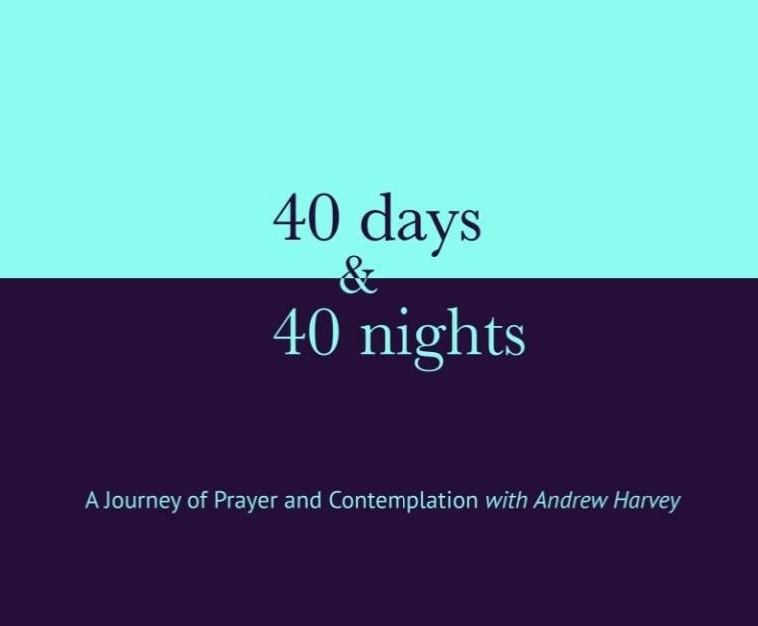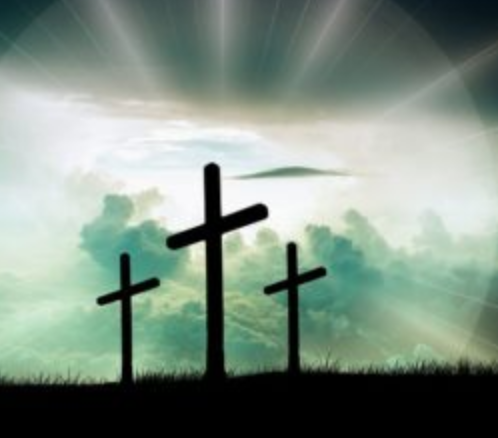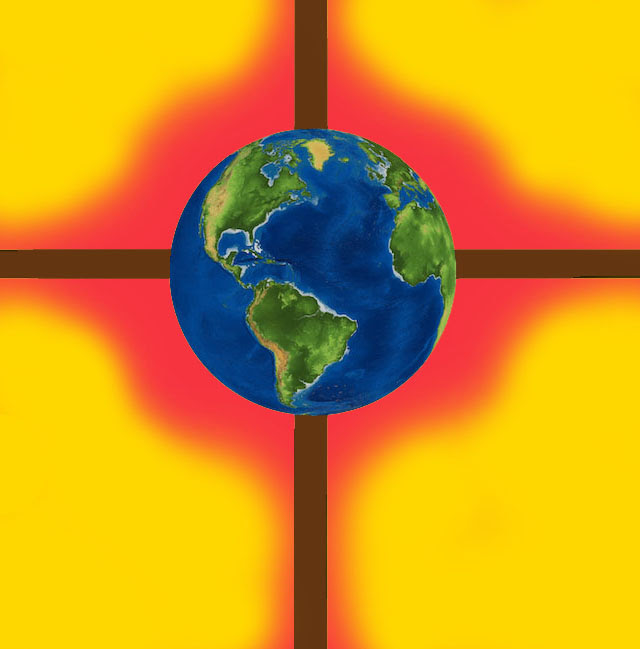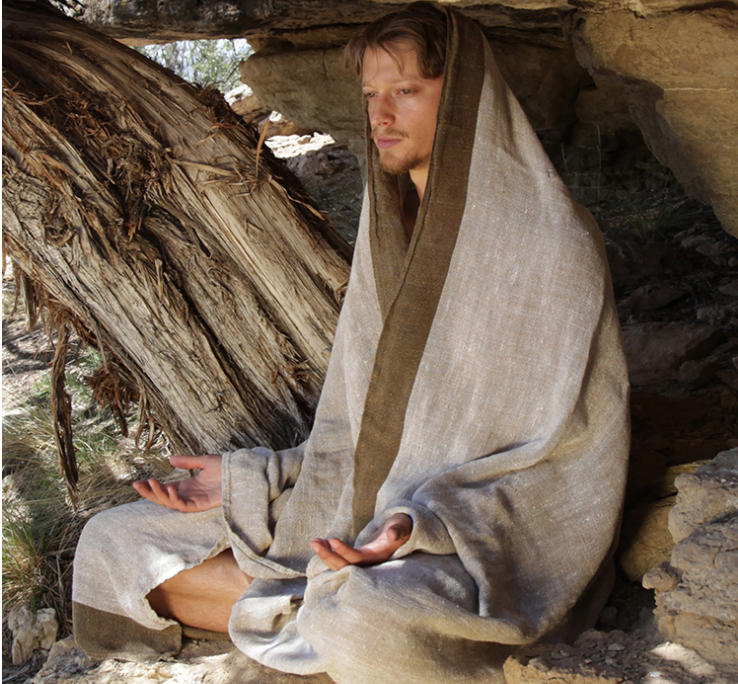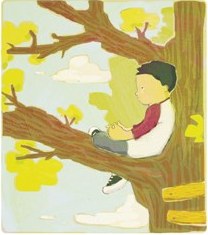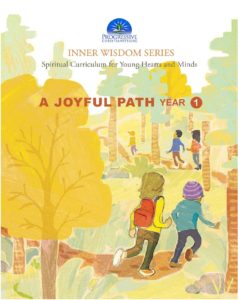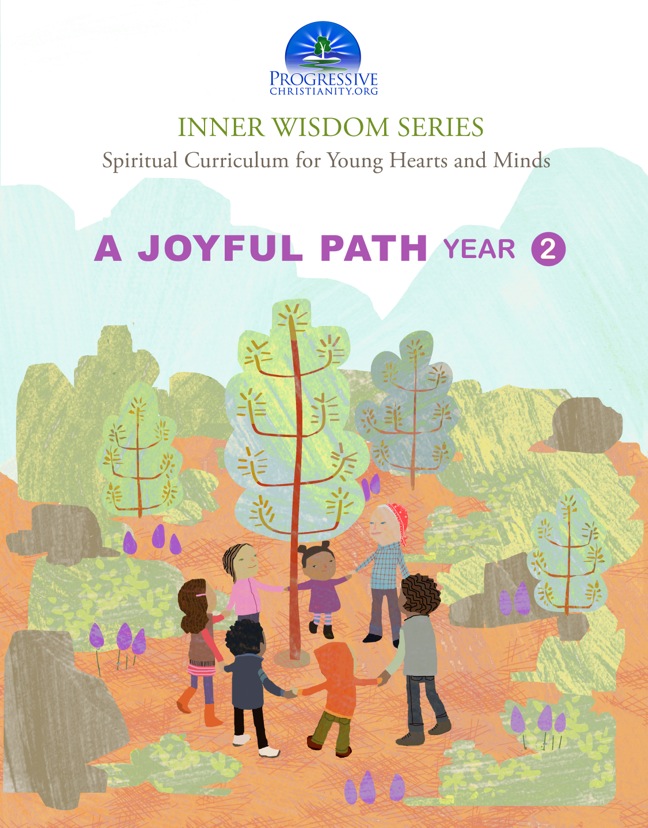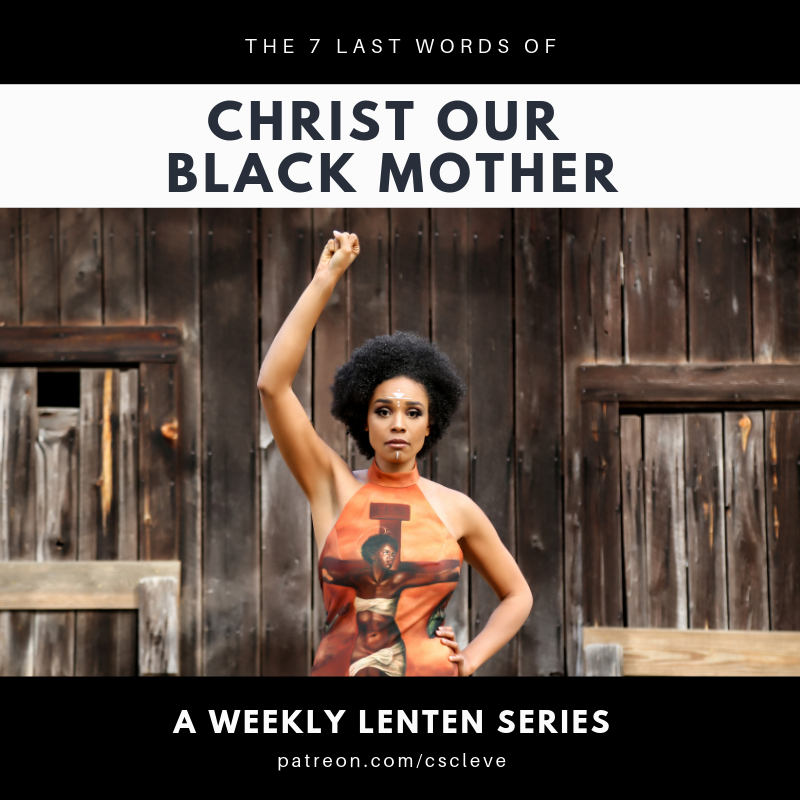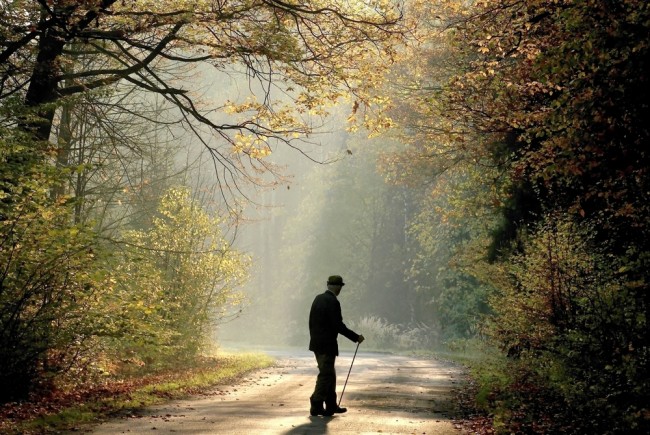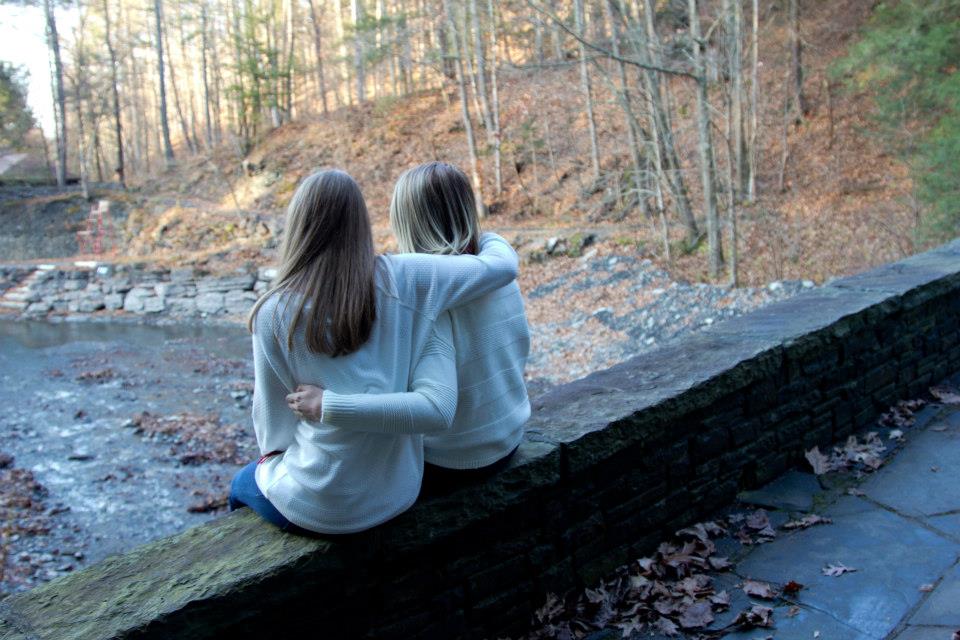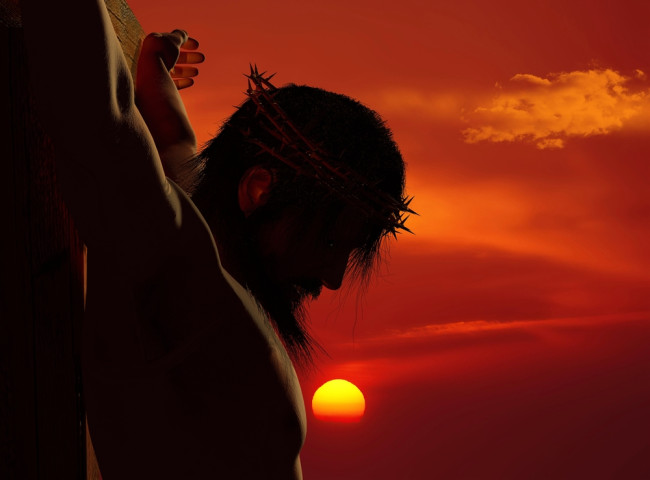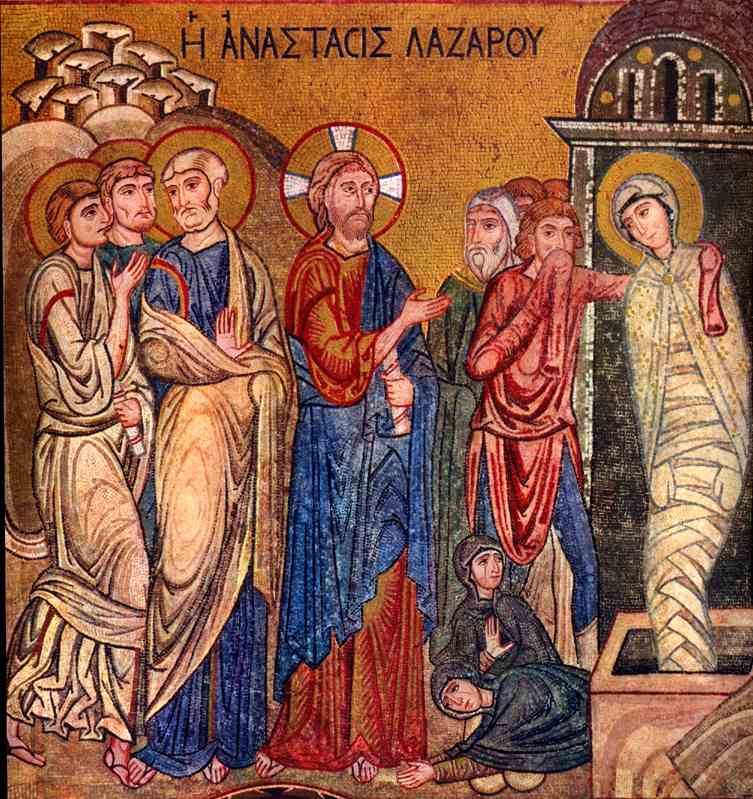Most years, sometime during the season of Lent, Jewish people observe Passover. I knew a little bit about it, but I learned a lot more at a friend’s son’s Bar Mitzva last week. The weekend of this Bar Mitzva included the Sabbath of the red heifer. I listened transfixed as the Rabbi spoke about it.
Now, I know Jesus taught his disciples to love their enemies and pray for those who persecute them. And following Jesus is something I take super-seriously. But I’m angry and worried, and pretty much everyone in the United States is. It isn’t easy to follow those particular instructions.
With Andrew Harvey
40 days & 40 nights: A Journey of Prayer and Contemplation
So why did I find this Lent so difficult? Loving our enemies is tough because it doesn’t mean overcoming disagreement; it means loving one another, protecting one another, caring for one another in spite of disagreement.
A practice for individuals and churches
You can “walk” these stations by practicing one station per day, from March 20 through Good Friday, April 2 – or at any other time or manner during Lent (Ash Wednesday, February 17, until Easter Sunday, April 4).
According to the Torah, on the Sabbath you can pick up an apple that naturally falls from a tree onto the ground, but you can’t pick it from the tree. Mindful Christian meditative prayer practice is very similar. In it, we take time to see things as they are, without interfering with them or trying to fix or change them.
During this precious Holiday Season for all religions and all people everything seems so much better when a candle is burning. It represents to me that God is Coming to help ascend into our higher nature, a nature that we all possess virtue of God creating us in his or her image.
*** This page has moved - please click here to Order Hard Copy and DVD. To see all Purchase Options Please Click Here.
In A Joyful Path, Year Two, we focus on some of the main tenets of Progressive Christianity and Spirituality, giving our children the foundation they need to walk the path of Jesus in today's world. It has stories and affirmations written to help children clarify their own personal beliefs while staying open to the wisdom of other traditions.
I am indebted to Amy-Jill Levine's book "Short Stories by Jesus" and Bernard Brandon Scott's book "Hear Then the Parable" for challenging me to look beyond the Christian bias of interpreting Jesus' parables through the lens of the repentance and forgiveness and attempting to hear this story in ways more in keeping with Judaism.
This is public theology. As precious Patrons, I’m inviting you in to my theological process. Beginning on Ash Wednesday (March 6) and concluding on Good Friday (April 19), each week I will publish a photo and brief reflection on each of Christ’s 7 Last Words on the Cross.
Today marks the first Sunday of Lent, a time of self-reflection and lament. It is often considered a season of darkness. Something I am all too familiar with. The season of Lent reminds me of walking a labyrinth. A labyrinth is a path that requires you to go in and come out the same way in which you entered. It is a journey towards the center, then back out again, into the world to which you came. You cannot skip the part you did not like, or go around a difficult feeling, you must return the exact way you entered. But, even though the path does not change, you have, and in this we find new life.
By Anita Little
During one of the airless afternoons I spent in St. Rita Sunday school, our teacher gave us the exercise of drawing the
In the larger scheme of life, I believe that the great challenge of western culture is to connect with our souls, our inner being, the “still small voice” that urges us to be this or do that. In the busyness and challenges of life it is easy to push aside that inner light and get on with the demands of work, family, and all the responsibilities life brings. The temptation is to live on the surface of life and neglect its depths.
When someone shares in our suffering, somehow the knowledge that we are not alone, that there is someone out there who knows the pain that we are going through, the knowledge that we are cared for by someone who truly knows our pain comforts us and gives us the strength we need to endure our suffering. To be alone in our suffering is the most terrible thing that we can imagine. The Good News that God is LOVE means that LOVE will not let us suffer alone because LOVE is determined to suffer with us. Working in, with, and through those who have experienced our pain LOVE is able to enfold us and say, “I know, my child, I know.”
The dry bones raised by Ezekiel are a metaphor for those who died in the service of God’s justice: those who died working to restore God’s distributive justice-compassion to God’s Earth, and who themselves never saw the transformation. The army of dry bones is an army exiled from justice. Fairness demands that if Jesus was resurrected into an Earth transformed into God’s realm of justice-compassion, then all the other martyrs who died too soon should also be raised with him. “But in fact,” Paul writes in 1 Corinthians 15:20, “Christ has been raised from the dead, the first fruits of those who have died.” It is the Christ – the transformed and transfigured post-Easter Jesus – who has started that general resurrection, which restores justice-compassion to a transformed Earth. The transformation has begun with Jesus, and continues with you and me – IF we sign on to the program.
A Lenten tradition in Western Christianity is to meditate upon the journey Christ took to Calvary. These stations or steps are found both in the Scriptures and in the traditions and legends of catholic Christianity. For many this practice is used to participate in the suffering and sacrifice endured by Christ. I encourage you to also take up this journey seeing within each station a calling for the modern, progressive Christian to grow in the ways and love of God. Meditate upon each station considering the questions or thoughts presented with a Scriptural verse to ponder and a brief prayer of the heart. In John 15:12 Jesus tells us, “This is my commandment, that you love one another as I have loved you.” Only by walking with Christ and seeing just how much he truly loved everyone can we begin to love others in the same fashion.
People across the continent are broadening the 43nd Earth Day to last 40 days. This year, PACE (The President's Advisory Committee on Ethical Eating) joins forces with the Unitarian Universalist Service Committee to focus on environmental justice and food workers’ rights, particularly the rights of restaurant workers. To honor these workers, we have timed the beginning of our campaign to coincide with International Workers Day on May 1. The official start of 40/40/43 is n May 5th and it extends 40 days to June 13th. The dates are flexible and congregations may decide to participate as part of the Justice Sunday "Choosing Compassionate Consumption" campaign which focuses on protecting the rights of workers in the food system
The Gift of Mortality
Avowed atheist Susan Jacoby recently created a dust up with a recent article in the New York Times Sunday Review entitled, “The Blessings of Atheism.” She wrote in response to all the god-talk that appeared in the immediate aftermath of the Newtown massacre; with all those unanswerable questions or inadequate answers to human suffering and death so often peddled in popular religious belief. So too, not long ago author and “non-believer,” Christopher Hitchen’s posthumously published his little book Mortality; recounting his rambling thoughts on his own imminent demise; after a terminal diagnosis left him a sufficient number of days to find himself “deported from the country of the well across the stark frontier that marks off the land of malady.” But what, or where to, after that? What if this really is all there is? It seems there has always been the human hankering to imagine all kinds of fanciful notions, in our attempts to recapitulate our mortal existence into something more than it is. Many religious traditions, including centuries of “mainline” orthodox Christianity, employ great mythic stories to describe a life subsumed into something greater than we can either know, or grasp, except by “faith.” Heaven knows, some folks try to better themselves, merely in the hope of a remote possibility there something more, after our death, which is a certainty. But in the end, is it all dust and ashes? And is that OK? This is the liturgical time of year when many in the Christian tradition undergo a seasonal pilgrimage in which the faithful are reminded at the onset we mortals are nothing more than dust. And so we will one day return to that from whence we came. Then the traditional forty days end with the perennial re-enactment of a passion play commemorating the mortal demise of the one whom Christians even these many centuries later would profess to follow. Many do so in the hope of some kind of immortality for themselves in some indecipherable form or other; attributing to Jesus a “resurrection” that means the same thing to them as god-like immortality; while others of us may find such imaginings to be not only reasonably implausible, but of less importance than what we take to be of greater significance and meaning in this faith tradition. Otherwise, the vainglorious hope of immortality can become so enshrouded in our mortal fears that we become – like Lazarus in his early grave – so wrapped up in death that we fail to truly acknowledge and appreciate the gift of our mortality for what it is; nothing more, nor less. With the certain assurance then that we are but dust and ash, we can ask ourselves if the gift of our mortality is not only enough, but more than enough? And if so, as the psalmist says, how then shall we “number our days, that we may apply our hearts to wisdom?” (Psalm 90:12)
Sea Raven details how the Gosepl of Jesus relates to the current debate over worker's rights.
The secret is, God’s covenantal justice is distributive. No being in the great matrix of the universe is left out. Matthew’s Jesus didn’t get it either.



